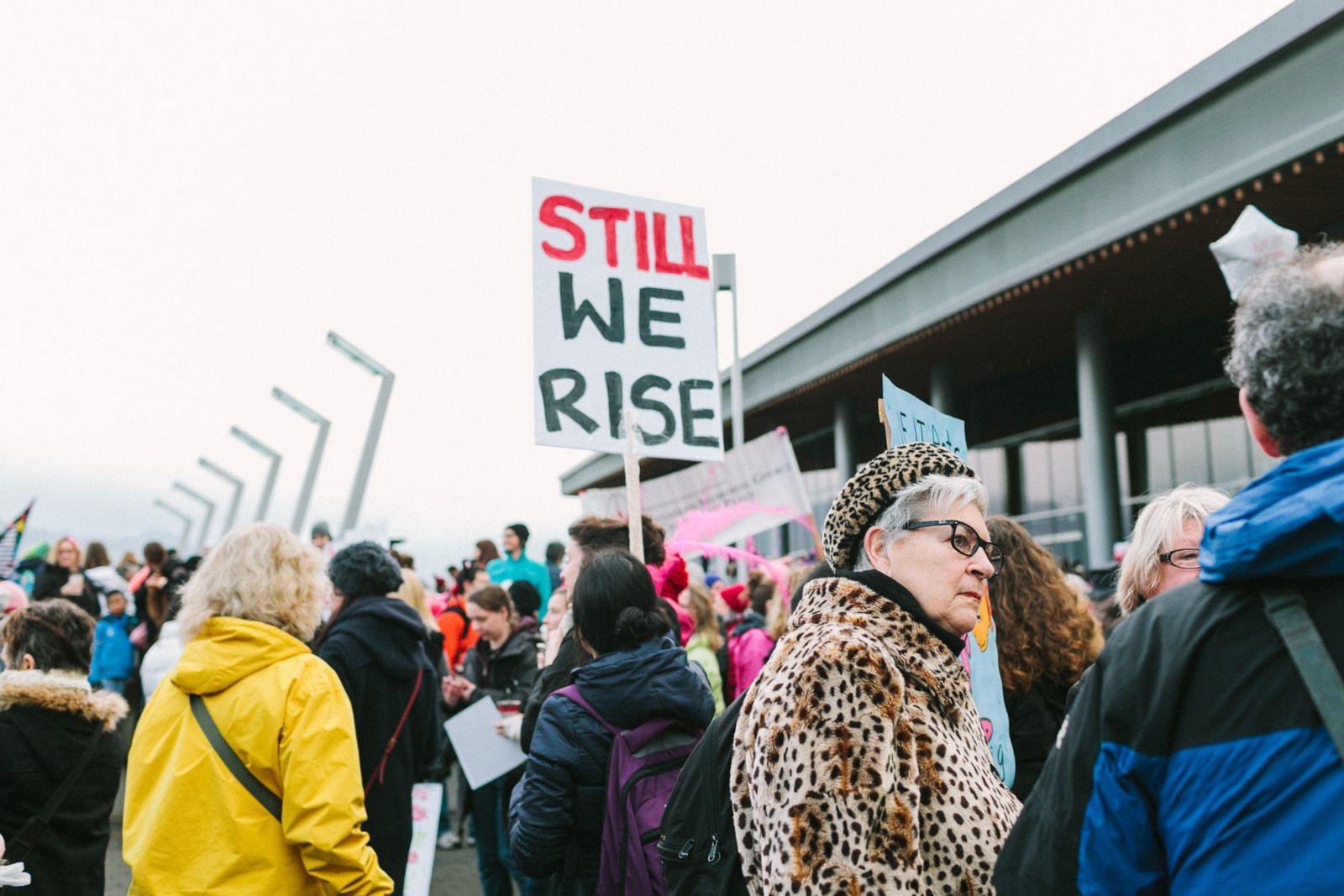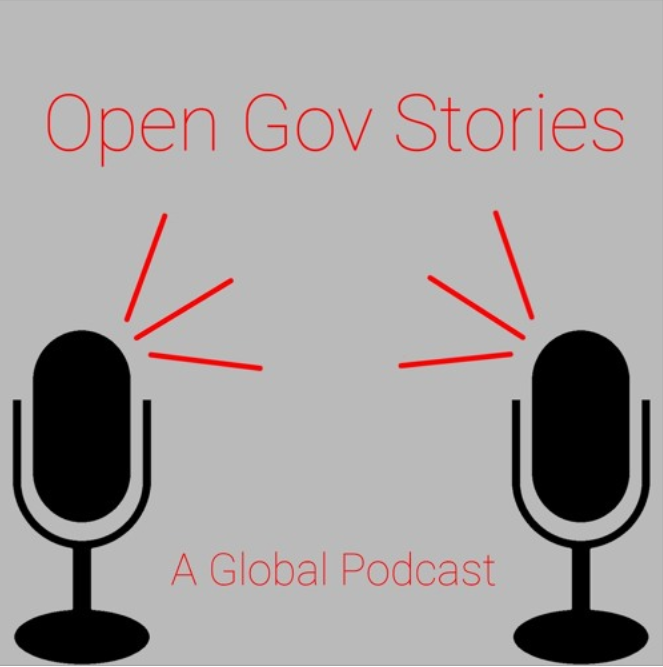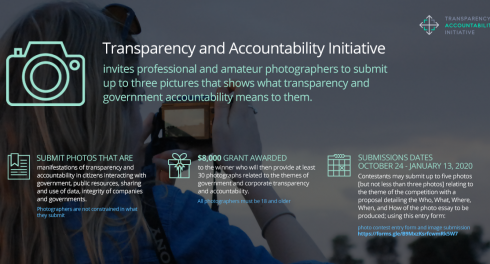Highlight:
- Not so fast but still loose
- Off the righteous path
- Let’s start over
- Death is no barrier to data breach
- Climate smart but still tax dumb?
- Tried and Tested
- TAI Spotlight: How Foundations listen to the people they seek to serve

Not so fast but still loose
Where do things stand in the efforts to defend civic space around the world? Saskia Brechenmacher and Tom Carothers offer a useful status review of what is an increasingly well-documented set of phenomena and ask if funder responses are stuck. Donors continue to worry at the trends (TAI members included), but actions of most have been limited, loosely focused and reactive. What to do? No surprise that we would echo calls for better policy alignment and coordination. Sad that the authors need to warn against setting negative domestic precedents that undermine calls to defends space abroad. It will be interesting to see what the OECD Observatory will take on these points when it kicks off more operationally before year end.
We know that frustration at corruption has led many to assert their civic rights and protest, but has it led to lasting policy change? (The return of Cristina Kirchner in Argentina despite corruption charges suggests that collective anger can soon fade or be redirected). For more on how to translate protest to last change, see Long Read below.
Meanwhile, in proactively welcoming efforts to promote civic duty, of which protesting is a type (or path), the founders of ioby (in our backyards), now offer 5 paid time off days for civic participation. Does your employer support civic duty?
LONG READ: After Protest: Pathways Beyond Mass Mobilization
In the past ten years, a huge wave of large-scale citizen protests has washed over the political life of every region of the world, but what happens after in terms of translating to lasting change (or not)? Carnegie Europe look at reasons for the protests across ten countries under three specific elements: how to categorize activists’ preferred pathways beyond protest, how to explain why activists choose these pathways, and how to understand the outcomes of the different pathways.
Off the righteous path
Former Permanent Observer to the UN, Manuel F. Montes, says Sustainable Development Goals financing has fallen off-track. His solution? Scrap rules that allow or encourage companies to shift profits to rich countries or tax havens. Pair Montes’ suggestion with this post on how credible government budgets are needed to achieve the SDGs. Why not fix mounting debt concerns at the same time? The Lowy Institute injects some welcome nuance, noting they have not seen China engage in “deliberate ‘debt trap’ diplomacy in the Pacific. Nonetheless, the sheer scale of China’s lending and its lack of strong institutional mechanisms to protect the debt sustainability of borrowing countries poses clear risks.”
Listen to OECD Tax Chief, Pascal Saint-Amans, talk about his fight against tax evasion and Tax Justice Network’s latest podcast on how to triumph over tax injustice.
A landmark in the US this past week as the US House of Representatives passed a landmark Corporate Transparency Act that will help to crack down on anonymous shell companies. Attention now turns to the US Senate. Meanwhile, a similar fight for a centralized beneficial ownership register in Nigeria seems stalled. The Civil Society Legislative Advocacy Centre restates the case for action. The Economist calls for more data sharing, stronger whistle blower protections, and higher fines to address money-laundering vulnerabilities of Europe’s banks. Curious to see how many of the record breaking 882 convictions made by Nigeria’s anti-corruption agency relied on whistleblowers and outside scrutiny tips.
Jane Ellis writes that the law profession started dominating discussion on corruption and bribery when we collectively started focusing on the supply side (those who pay the bribes) of corruption, instead of the demand. Talking of lawyers, what about those who might enable corruption? Interesting to see South African utility giant ESKOM accuse consultants Deloitte of “pure corruption” (words you don’t expect to see together) – the latest in the state capture scandal.
Let’s start over

See all this as evidence of the need for a more radical overhaul? Marc Benioff, of Salesforce genius and wealth, would agree. He argues the current iteration of capitalism is dead and due for a refresh, citing rapidly expanding extreme inequality. More effective wealth investment may not be sufficiently radical for what he had in mind, but as US millennials are expected to inherit more than $30 trillion in the next 30 years, Alice Ross at FT makes a case for the super wealthy to make more impact investments.
What will new markets look like? What will the currencies be? UNICEF is already adapting and changing with the times by now accepting and disbursing funds via Bitcoin, a blockchain currency. Talking of blockchain, there are a growing number of applications now that are starting to underpin some of the hype. Sarah Murray digs into transformations in supply chains – using blockchain for everything from verifying provenance in food or minerals through to contracting (all oil giant Shell’s North Sea supply chain transactions are on blockchain – apparently leading to significant savings through “frictionless” invoicing).
Staying with the contracting innovations, the oil sector is again leading the way – this time with an attempt to shift contracting from an adversarial process where lawyers try to account for every conceivable eventuality to a process based on a relationship of trust with a common vision. One way to do it? Visual contracts that help reinforce implicit understanding of what is expected on both sides. Combined with simplifying text this suggests another avenue to more open contracts – more open to comprehension to non-lawyers. Can we expect to see it spread more broadly to government procurement before too long?
Death is no barrier to data breach

As worry over online privacy intensifies, check out these essential tools and habits for reclaiming your data privacy and how to stop your data from being stolen after you die.
Will policymakers help the consumer? Kevin E. Davis and Florencia Marotta-Wurgler explore intuitive variations of the adoption of data privacy policies across countries after the adoption of the European Union’s General Data Protection Regulation. More heat on Facebook this week as its founder sat in Washington’s crosshairs over complacency on data privacy, fake political ads and it new global digital currency. Facebook isn’t the only culprit. The European Data Protection Supervisor raised concerns over Microsoft’s compliance with data protection regulations and China was also flagged for harvesting people’s data globally to reshape global governance and boost its military intelligence.
Need a more optimistic take? IREX’S Samhir Vasdev suggests how data science can achieve its full potential in the realm of sustainable development.
Climate-smart but still tax dumb?
David Manley and Thomas Lassourd see signs at the recent Intergovernmental Forum on Mining, Minerals, Metals and Sustainable Development that the sector is repositioning itself as part of the climate response – essential to renewables production – and yet many countries are still struggling with effectively taxing the mining sector and getting the right balance of tax instruments. A non-renewable case in point is Myanmar’s jade industry. It’s corrupt, it’s smuggled, and it’s now being sold online through livestreamed auctions, thus further reducing tax revenue. As Siemens extractive division estimates revenues from oil and gas to double in Brazil from 2018 to 2020, the world can only wait and hope that Brazil appropriately taxes those revenues.
Returning to tax and corruption themes, as we noted last week, the EITI had their 45th board meeting recently in Addis Ababa. Among the takeaways: implementing countries are making progress, the EITI works effectively with some countries’ Supreme Audit Institutions, and the initiative must still clarify its role in addressing corruption. To help, Alexandra Gilles wrote this exploratory piece for them.
ESSENTIAL LISTENING: Pathways to Power
The Global Fund for Community Foundations presents a series of conversations with development funders and practitioners, exploring why the aid industry fails to focus on local needs and priorities in practice, and how to change this.

*Don’t forget to check out the Open Gov Stories Global Podcast Series with Open Gov Hub. It goes behind the scenes to explore why social changemakers do the work they do. Listen to more than 20 stories from people in the TAP field – new ones to come each month. Plus you can record and add your own.
Tried and tested
Given all the attention to RCTs as discussed in the last Weekly, we enjoyed reading the latest J-PAL note on empowering citizens with information in Indonesia. It led to a significant increase in the benefits that eligible households received from a subsidized rice program.
Sticking with the theme of measuring impact, Chana Schoenberger notes that the trend to corporate-style impact reporting is alienating nonprofit employees. As researcher Julia Morley recounts “The language that was used in social-impact reporting tends to be quite abstract and statistical, which is very different from the emotional, empathetic, narrative accounts that tend to be otherwise provided by nonprofit organizations.”
Anita Khashu, Bridgit Antoinette, and Aleyamma Mathew discuss some of the benefits of cross-sector collaboration and why they are important for grantmaker impact. R4D’s Jean Arkedis shares an “explainer” video about a framework for using different monitoring, evaluation, and research methods to advance adaptive learning. Checkout this new website that allows you to track evidence and learning products from the Global Integrity Anti-Corruption Evidence (GI-ACE) research program. Also, don’t miss Development Gateway’s report as they share the four strategic objectives guiding their strategic vision.
A huge barrier to diversity, equity, and inclusion, is simply unconscious bias. Read here to learn ways to reduce unconscious bias and build more diverse teams. Another way to increase diversity and inclusion is to not only encourage or mandate feedback, but then act upon it in a meaningful way.
TAI Spotlight: How Foundations listen to the people they seek to serve
How Foundations Listen to the People they Seek to Serve | Hewlett Foundation
Hewlett’s Learning Officer, Carla Ganiel spoke with Ekouté Nonprofit Consulting about a new research conducted by Hewlett Foundation on how other funders are trying to systematically gather and use feedback from the people their grants are intended to benefit.
Letting Grantees Lead | Ford Foundation
Program Officer for the Building Institutions and Networks (BUILD), Victoria Dunning, shares FORD’s learning in the last three years since it made a $1 billion dollar commitment to building institutions and networks.
$90M Catalytic Fund to Address the Challenges of Global Climate Change | MacArthur Foundation
Alongside David and Lucile Packard Foundation, MacArthur Foundation launched Terra Silva, a $90 million impact investing fund for the protection of tropical forests worldwide.
Helping Governments and People Make the Most of their Natural Resources | Luminate
Read why Luminate renewed its support to the Natural Resource Governance Institute with a grant of $2.25M over 3 years to help them continue to build global norms for transparency and accountability in the extractive industries and to support stronger governance of those industries.
Calls:
Managing Director of Programs and Learning – Ongoing
Democracy Fund: Sr. Associate, Strategy & Learning – Ongoing
Offer feedback on USAID’s Digital Strategy – October 17 – November 3
Racial Equity in Journalism Fund – October 30
Accountability Incubator program for young change makers – October 31
Craig Newmark Cyber Journalism Fellowship – November 1
Call for papers: Nigerian Tax Research Network Conference – November 6
TAI Student Fellowship – Spring 2020 – November 10
Small Charities Challenge Fund for UK registered NGOs and Charities – November 28
TAI Photo Grant – January 13, 2020
Calendar
Global Perspectives 2019 – October 29 – November 1, 2019 (Addis Ababa, Ethiopia)
Global Partnership for Social Accountability – Global Partners Forum 2019 – November 19-21, 2019 (Washington DC, United States)
Storytelling and the Future of Advocacy in the 21st Century – November 21, 2019 (Washington DC, United States)
ODI Summit 2019 – November 12 – 2019 (London, United Kingdom)
The Story Conference – November 27 – 29, 2019 (Melbourne, Australia)
The Impacts of Civic Tech Conference (TICTeC) – March 24 – 25, 2020 (Reykjavik, Iceland)
Transparency International: 19th International Anti-Corruption Conference – June 2 – 5, 2020 (Seoul, South Korea)
Women and Girls Africa Summit – June 9-12, 2020 (Durban, South Africa


